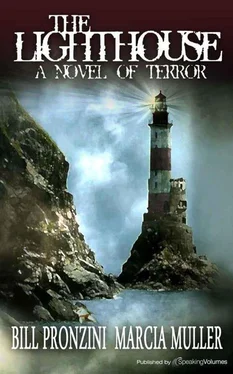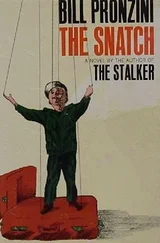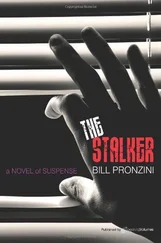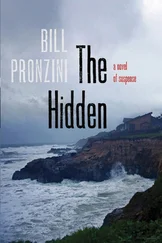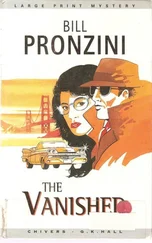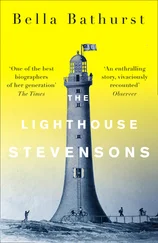“Talked to Deputy Frank Pierce over to the cafe last night. He stopped by for coffee while I was having dinner and I asked him and he said she wasn’t raped. Just strangled, that’s all.”
“Pierce tell you anything else?”
“Well,” Bonner said, real sly, “she was pregnant.”
“The hell she was.”
“That’s what Frank Pierce said. Four months pregnant.”
“Wonder who the father was.”
“Some college kid. Who cares?”
“Maybe he’s the one killed her.”
“Way over here on the coast?”
“Why not? Maybe she wasn’t hitchhiking at all. Maybe he brought her down here and strangled her because she got herself knocked up.”
“Wasn’t any college kid strangled her,” Bonner said. “I told Frank Pierce who I think done it, but he wouldn’t listen.”
“Who do you think done it?”
“Ryerson, that’s who. Out at the light.”
“Why’d he do a thing like that?”
“He’s crazy, that’s why. One of them homicidal maniacs. He run down Mitch’s dog, didn’t he?”
“Big difference between running down a dog and strangling a woman, Seth.”
“We never had no murder around here before he come,” Bonner said. “No murder in thirty-seven years, that’s what the papers said. Thirty-seven years and then Ryerson shows up and now Red’s dead and we got us a girl strangled right here in Hilliard, not more’n two miles from the Cape Despair Light.”
“Seems funny, sure. But that don’t necessarily mean Ryerson killed the girl.”
“Does as far as I’m concerned. Hey, Mitch, you think I’m right, don’t you? You think Ryerson killed that little girl?”
Mitch didn’t say anything. He was tired of all this talk-all morning, ever since he’d brought the Spindrift in, nothing but talk, talk, talk. His head was pounding: the beer and the cigarettes and the talk. He needed some air, some peace and quiet. He could get that much, by Christ, if he couldn’t get anything else.
He climbed off his stool, told Les to put the beers on his tab, and went out with Bonner calling something after him that he didn’t listen to. It was a cold day, cold and gray; the sky had a dead look, like the way he felt inside. He walked down along the bay, away from the boat slips and the cannery because he didn’t want to run into Hod or Adam or any of his other buddies. They’d ask him what was wrong, try to cheer him up. He didn’t want that; it would only make things worse.
He walked out near the southern headland. Where the thin strip of beach began to curve, he stopped and sat down on a driftwood log and looked out to sea. There wasn’t anybody else around. The wind lashed at him, but he didn’t mind that. Didn’t mind the cold either. Out here his head didn’t hurt nearly as much as it had in the Sea Breeze.
After a time he found that he wasn’t looking at the ocean anymore; he was looking out at the rocky shore of the cape. You couldn’t see the lighthouse from here, but he was seeing it inside his head. Ryerson, too, out there all smug and satisfied, like some king in his little private castle. What did he have to worry about, the bastard? He had plenty of money-he had everything a man could want. Red’s blood on his hands and he had everything and you couldn’t touch him, a man like that, couldn’t touch him at all. It wasn’t right. It just wasn’t right.
Hey, Mitch, you think I’m right, don’t you? You think Ryerson killed that little girl?
Talk, that was all. Bullshit talk. Or was it? Ryerson had killed Red, run him down that way, in cold blood; man who’d do a thing like that was capable of murdering a human being, wasn’t he? Maybe old Bonner was right. Maybe Ryerson had strangled that girl.
But then why hadn’t the state troopers arrested him? Didn’t know what the hell they were doing, could be. Hamstrung by a lot of legal crap. That was why they hadn’t arrested him for murdering Red, wasn’t it? Man was a killer and they hadn’t done anything about it. Weren’t going to do anything about it, way it looked. Just let him keep on sitting out there, smug and satisfied, safe, until he felt like killing somebody else’s dog-somebody else’s kid, too, maybe.
Something ought to be done, by God. He’d been going to do something himself, even before that girl turned up dead. Wasn’t that what he’d said to Hod and Adam? That bastard won’t get away with it, he’d said. I’ll see to that, he’d said, I’ll fix his wagon. There are ways, he’d said.
But what had he done? Nothing, that’s what. Only one who’d done anything was Adam, shooting up Ryerson’s car the way he had- he’d taken some action, even if it hadn’t done much good. Good old Mitch, though, he hadn’t done anything except blow off at the mouth. Story of his life: talk, talk, talk. Big plans, big talk, but when it came down to the crunch… nothing.
But it didn’t have to keep on being that way. He didn’t have to keep on being a blowhard, a loser. Things could change. Yes, and by Christ they were going to change! He was tired of being pushed around, sick and tired of it. He couldn’t do much about the bad fishing or Marie or her mother or all his debts, not right now he couldn’t, but he could do something about Ryerson.
He sat there a while longer, letting the wind rip at him, letting his anger build to a high, hot flame that insulated him against the cold. Then he got up and walked back along the beach and went into Mike’s Cafe. There was a public telephone back by the johns; he made sure nobody was around and then got the number of the lighthouse, put a quarter in the slot, put his handkerchief around the mouthpiece as he dialed.
“hell?”
“Ryerson?”
“Yes? Who’s calling?”
“Get out of Hilliard, if you know what’s good for you. You got twenty-four hours.”
Silence for four or five seconds. Then, “Who is this?”
“You heard me, you prick. Twenty-four hours, or we’ll come and drag you out. You and your wife both.”
Mitch slammed down the receiver, hard, before Ryerson could say anything else.
She brought the station wagon to a stop in the parking area of Lang’s Gallery and Gifts and looked with dismay at the CLOSED sign in the window. Then she glanced past the squarish building to the shabby gray Victorian house that stood some twenty yards beyond it. Through the sheer-curtained front window she saw the glow of a chandelier. Cassie Lang was probably taking the day off at home.
Alix sat drumming her fingers on the steering wheel, wondering if she should bother the gallery owner. She herself hated unexpected visits at home, but not everyone was as jealous of her privacy. And on her prior visit to the gallery, Cassie had seemed glad, even eager for company. At length she nodded decisively, got out of the car, and made her way across the overgrown lawn toward the Victorian.
Her trip into Bandon had been disappointing. Dave Sanderson, she’d been told when she reached his office in Palo Alto, was unavailable: he was attending a medical convention in Atlanta and wasn’t scheduled to return until next week. His nurse had offered to put her in touch with the colleague who was covering for Dave, but Alix had declined and hung up without leaving a message.
Rather than give in to her disappointment, which would only have led to depression, she’d taken her crumpled grocery list to a nearby supermarket. There, among the familiar boxes and bottles and cans, selecting familiar merchandise with practiced motions, she was able to create a semblance of normalcy, concentrating on such mundane questions as what to have for dinner that night and whether the food in the cart was enough to hold them for a full week. She was able to make the sense of normalcy last all the way back to Hilliard, wrapping herself in a comfortable cocoon, and when she’d seen the sign for Cassie’s gallery, she’d decided on impulse to stop and prolong it. She just didn’t feel like returning yet to the bleak landscape of Cape Despair.
Читать дальше
